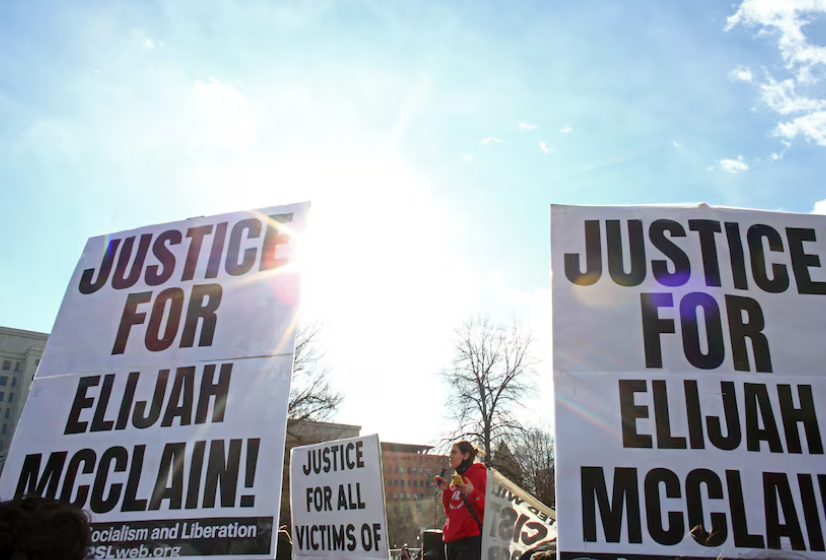On Friday, a Colorado judge sentenced Jeremy Cooper, a paramedic convicted in the 2019 death of Elijah McClain, to 14 months in a work-release program and four years of probation.
The 23-year-old Black man died after police slammed him to the ground and put him in a chokehold at least twice.
Paramedics injected him with an excessive dose of ketamine, an anesthetic used for sedation, after police claimed he was in a state of “excited delirium.”
McClain was not suspected of any wrongdoing when police stopped him as he walked down the street.
Cooper, 49, had faced up to three years in prison for his conviction last December of criminally negligent homicide. The sentencing closes out the three trials surrounding McClain’s death.
One police officer was sentenced to 14 months in jail, two officers were found not guilty, and Cooper’s fellow paramedic was sentenced to five years in prison. Paramedics rarely face charges in such cases.
Sheneen McClain, Elijah’s mother, walked out of the courtroom when a tearful Cooper rose to speak, directing sorrowful comments to her son.
She later returned to give her own statement before the court and told Cooper never to invoke her son’s name.
She emphasized that the law enforcement culture permitting young Black men to be killed with greater frequency than their white counterparts will not change until deep shifts take place.
“America will never be what it could be because it does not look at all its citizens as one race – the human race,” Sheneen McClain declared.
Long live Elijah McClain
She then touched her right hand to her chest and lifted it skyward, choked back tears, and concluded: “Long live Elijah McClain, always and forever!”
Colorado has undergone significant police reforms since McClain’s killing and the subsequent racial justice protests sparked by the killing of George Floyd in Minneapolis, Minnesota. Politicians and experts assert that more must be done.
State Representative Leslie Herod, a co-sponsor of a sweeping 2020 police reform bill, highlighted the most impactful measure: officers have a duty to intervene if they witness a colleague committing civil rights violations.
Herod is now focusing on providing whistleblower protections for police officers and advocating for new laws to ensure independent bodies investigate allegations against police.

Since McClain’s death, Colorado has implemented several laws and measures directly stemming from his case:
- The banning of chokeholds
- Prohibitions on police officers pushing paramedics to use ketamine on a suspect
- Banning police trainers from instructing on “excited delirium,” a racially charged pseudo-diagnosis, according to some experts.
David Pyrooz, a University of Colorado criminologist, noted that Colorado experienced some of the largest racial justice protests in 2020, turning the state “into a battleground for police reform.”
Pyrooz emphasized the need for more scrutiny and regulation, which may deter some individuals from pursuing police careers.
Alexander Landau, co-director of the Denver Justice Project, highlighted the importance of district attorney races, as these officials decide whether to bring charges.
In McClain’s case, charges were only brought after the state attorney general’s office intervened.
“Influencing broader community members to pay attention to those district attorney races, and who the candidates are, is very important to helping shift the violent and racist practices in any law enforcement department,” Landau emphasized.

